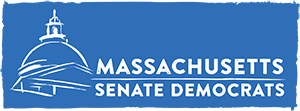Massachusetts lawmakers send Gov. Charlie Baker $101 million COVID bill

Chris Van Buskirk | State House News Service | February 3, 2022
The Legislature delivered a $101 million proposal to Gov. Charlie Baker Thursday that invests in COVID-19 rapid testing, high-quality masks, and vaccination equity for public schools, congregate care facilities, health care workers, and homeless shelters.
The bill also includes extensions to COVID-19-era emergency rules allowing remote notary services, public meetings, and reverse-mortgage counseling. And it schedules the statewide primary election on Tuesday, Sept. 6.
The legislation (H 4430) grew by $46 million since it first emerged in the Legislature with additional dollars now targeted towards replenishing the COVID-19 Paid Sick Leave Program and to support education campaigns about an unemployment overpayment waiver process.
“With this agreement, we support our ongoing pandemic response efforts by including $75 million for masks, rapid tests and vaccine equity efforts that support children, educators, front-line health care workers, small businesses, our most vulnerable populations and communities disproportionately impacted by this pandemic,” Ways and Means Co-Chairs Sen. Michael Rodrigues and Rep. Aaron Michlewitz announced at 10:46 a.m.
With just a few members on hand at Thursday’s 11 a.m. sessions, the House and Senate quickly signed off on the bill and shuttled it to Baker by mid-afternoon.
The governor’s office had nothing to say about the bill other than that Baker would review it. Baker now has 10 days to sign the bill, offer a veto, or return the bill to the Legislature with an amendment.
The bill before Baker earmarks $50 million to establish and expand COVID-19 testing at community health centers, regional vaccination clinics, urgent care centers, and other nonprofit organizations. Locations receiving money to add more testing must provide walk-up appointments, according to the bill text.
“The bill before us today is a supplemental budget that provides for critical time sensitive supports against the pandemic, alongside a number of crucial pandemic related policy extensions,” Rodrigues said Thursday from the Senate floor. “Basically, in a nutshell, what this amendment before us does, it takes all the great work suggested by our friends in the House, it takes all the great work that we added, suggested by all of our members here in the Senate, and combines both of them.”
Elementary and secondary public schools, charter schools, educational collaboratives, early education and care programs, congregate care facilities, early intervention programs, and homeless shelters will also have money to purchase COVID-19 rapid antigen tests.
Another $5 million is set aside to increase youth vaccination rates and an additional $5 million is reserved to support expanded infrastructure and staff capacity at community health centers to deliver COVID-19 vaccines in communities with low vaccination rates.
The final bill includes $1 million for the Department of Unemployment Assistance to “maximize the reach of the public information campaign” related to unemployment insurance benefits overpayments.
The bill boosts by $25 million the COVID-19 Massachusetts Emergency Paid Sick Leave Program, which was created under a May 2021 law that called for $75 million in spending for a program offering workers up to one week of paid leave, capped at $850.
“We in the Senate established this [paid sick leave] program back in the summer, thinking that this pandemic would be behind us by now, not knowing that we’d have a new variant called omicron,” Rodrigues said. “We believe that this additional $25 million should help us weather this surge with the omicron variant and continue to provide necessary supports for those that have to take time out of work.”
Senate Minority Bruce Tarr raised concerns about plans to send the bill to Baker on the same day the new text was released. As the Senate was considering the legislation Thursday, Tarr called for a 30-minute recess to hold a meeting for members of the Republican Caucus to review the just-announced bill.
“I am concerned with the transparency and the ability for not only the members, but the public, to be able to read the contents of this measure,” Tarr said. “The spending amount of which has increased significantly, without specific precision as to math, it’s increased by … approximately 30 percent.”
The bill also requires the secretary of health and human services to implement a “detailed, comprehensive” plan to eliminate vaccination rate disparities within 120 days of the effective date of the bill.
Under the bill, health/care professionals and facilities are immune from lawsuits and civil liability for any alleged damages that were sustained while providing services during the COVID-19 outbreak. During the Senate debate last week, Sen. Julian Cyr offered a successful amendment that extended those protections to skilled nursing facilities.
The immunity does not apply if the damages were caused “by an act or omission constituting gross negligence, recklessness, or conduct with an intent to harm or to discriminate based on race, ethnicity, national origin, religion, disability, sexual orientation, or gender identity,” the bill text says.
